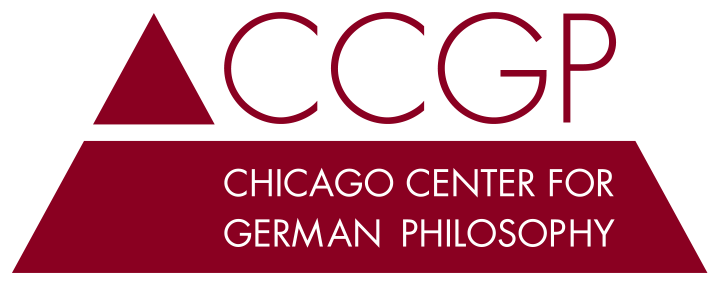
About German Philosophy at the University of Chicago
German Philosophy at the University of Chicago
The study of German philosophy has enjoyed a rich history at the University of Chicago, starting with the founding of the Philosophy Department in 1894 under the stewardship of its first chairman, John Dewey, an ardent admirer of Hegel. Over the past quarter of a century or so, beginning in 1992 when Robert Pippin came to the Committee on Social Thought, joining Daniel Brudney and Michael Forster on the philosophy faculty, then reinforced by the subsequent appointments of James Conant, David Wellbery, Matthew Boyle, and Matthias Haase, there has been an ever-intensifying degree of activity in this area of research at the University of Chicago. For the past decade, prior to the founding of the CCGP, the center of this activity on the University of Chicago campus was the German Philosophy Workshop.
The Chicago Center for German Philosophy or CCGP, following in the tradition of the German Philosophy Workshop, operates with a very broad understanding of the concept of German Philosophy, encompassing the following seven dimensions of the concept: (1) German Idealism and its precursors (with a special emphasis on the close reading of Kant’s and Hegel’s major works); (2) 19th-century German philosophy (especially Schopenhauer, neo-Kantianism, neo-Hegelianism, Marxism, and Nietzsche); (3) 20th-century German philosophy (especially the phenomenological and hermeneutic traditions), (4) the elucidation and development within the Anglophone tradition of central concepts, methods, and concerns of the German tradition (such as transcendental argument, genealogical critique, phenomenological method, etc.); (5) the German tradition in analytic philosophy (from its roots in Frege, through the Vienna Circle, up until the present); (6) the Wittgensteinian tradition, both as it contributes to the analytic tradition and where it departs from it; and, last but not least, (7) cutting-edge work by contemporary German philosophers on topics in all areas of philosophy. In connection with this last dimension, the workshop will invite a number of contemporary German philosophers each year to present their ongoing work. Meetings of the workshop will be more or less evenly divided between sessions devoted to discussion of graduate student work in progress and presentations by outside speakers working in one of the seven aforementioned areas.
The CCGP officially began life on July 1, 2017, thanks to a ten-year grant from the Division of Humanities at the University of Chicago to support its funding. It receives additional financial assistance for its visiting scholars, travel fellowships, research projects, and international conferences from its institutional partners abroad, especially in Germany — above all, from the FAGI, its sister research center at the University of Leipzig.
For more information about the CCGP itself, click here. For more information about some of the larger recent research projects and cooperative ventures in the area of history of German philosophy at the University of Chicago, click here.
